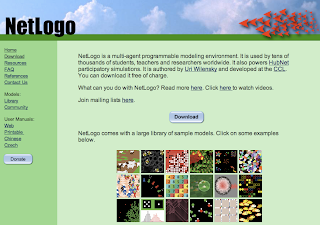Furthermore he talked about organisation climate and wellbeing in some detail, and what some major drivers were that impacted on staff wellbing and school climate.
I was particularly struck by his slide on the red and blue triangle, considering that Peter was unlikely to have placed this there without some good evidence to its usefulness I decided to do some background reading on this.
The background for this model of personal and organisational behaviour was first described by in Stephen Karpman in 1968, and is a branch of Transactinal Analysis - which is a form of psychotherapy concerned with the observable interactions between people.
The red triangle represents a drama centred culture where people or individuals react to change or issues by oscillating around the roles in the red triangle- denoted by capital letters to distinguish them from the actual victim etc. In the red triangle, people feel that everything is being done to them. This could be due to changes taking place in an organsiation, or on the reception of feedback about work performance. When this occurs, people can often respond from the "victim" role ( this is state of mind distinct from being the actual victim ). When this occurs, people often think or say things like "how dare they", "I've been done over" etc. What happens next is that the person (or others around) assume the role of the rescuer or the persecutor. In the rescuer role, the person tries to assist by doing something to alleviate the issue - this could be by switching to persecutor "how dare they, I'll show them" or continue in the rescuer role and try to fix the situation or take on the problem of the other person. The drama or blame triangle is really about the past, apportioning blame and getting retribution for things. It is a fairly common thinking pattern in the western world, perhaps due to our culture where analytical right/wrong or "black hat thinking" (as described by Debono et al) predominates society.
In the Victim role, the person can take a passive role and become angry with themselves, or depressed taking the blame on themselves which tends to lead to others or themselves taking on the Rescuer role. Or they can be angry which leads to the Persecutor role.
This can quickly escalate so that the victim then becomes the persecutor, and the persecutor the victim and so on.
An example of this is as follows:
Nancy: Why didn't you make that payment yesterday? (Persecutor). Now I will have to answer to the board for the contract falling through. (Victim)
Andrew: Hey it wasn't my fault (victim), you didn't complete the paperwork by the deadline. (persecutor)
Nancy: Well now I will have to cover for you by lying to the board (rescuer)
Some other good examples of this are listed in this paper in the Postgraduate Medical Journal from the BMJ.
The alternative to this is a healthy winners triangle - which has been described as follows:
The essence of the winners triangle is about accepting responsibility for mistakes or changes that are happening, and not blaming self or others. Instead of rescuing others (including problem solving or apologising for things one hasn't done)- one expresses concern but also that the victim has power to overcome their issues.
The winners triangle is about the future, and not taking things personally, instead taking things from a learning perspective. Instead of being a rescuer one becomes resourcesful - assisting others to take responsibility for things and generate their own solutions. In education quite often the conversation about students, or supervisors, or other teachers spirals in the drama triangle. The language and thinking of the triangle is used: Johhny is lazy, that's why he is failing? If only Jimmy would... Then he would do O.K. Admin is not supportive, they don't care about our problems.
Rescue is insisted upon- Year level coordinators feel obliged to step in and rescue teachers by removing difficult students.
Further reading
Further reading 2


